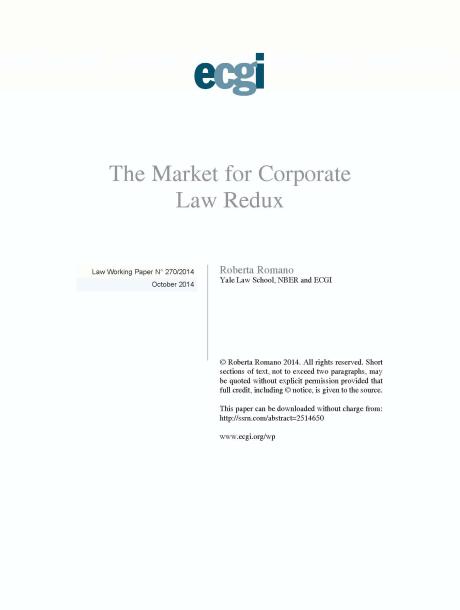
The Market for Corporate Law Redux
Abstract
Corporations operate in numerous markets -- product markets, labor markets, capital-markets. This chapter focuses on the market that is the prerequisite for firms? successful operation in all other markets, as it is the market that frames their organizational structure and governance: the market for corporate law. In the United States, two features of the legal landscape have informed such a conceptualization of corporate law as a product: (1) corporate law is the domain of the states rather than the national government; and (2) under the internal affairs doctrine, the state whose corporate law governs a firm is the state of its statutory domicile. This arrangement provides firms with a choice, they can select their governing law from among the states regardless of their physical location, hence the notion that states offer a product that corporations purchase, by means of incorporation fees (referred to as franchise taxes). For the past century, remarkably, one small state, Delaware, has been the market leader, serving as the domicile for the overwhelming majority of U.S. corporations. The debate over the market for corporate law has focused, in large part, on whether the phenomenon of Delaware?s dominance is for the better. The first part of the chapter analyzes the dynamics of the U.S. market for corporate law, which can best be characterized as states competing for corporate charters, along with data pertinent to the question of whom this market organization benefits -- managers or shareholders? and explanations why Delaware has had a persistent and commanding position. The focus is on the market for public corporations, given their relative importance to the economy, the more extensive literature, and space limitations for this chapter. The second part of the chapter turns to explain Delaware?s persistence as the preeminent incorporation state. This is a distinctive feature of U.S. corporate law. There are other federal systems of corporate law, but a similar ?Delaware? phenomenon does not exist. The chapter concludes with a summary and suggestions for future research.









